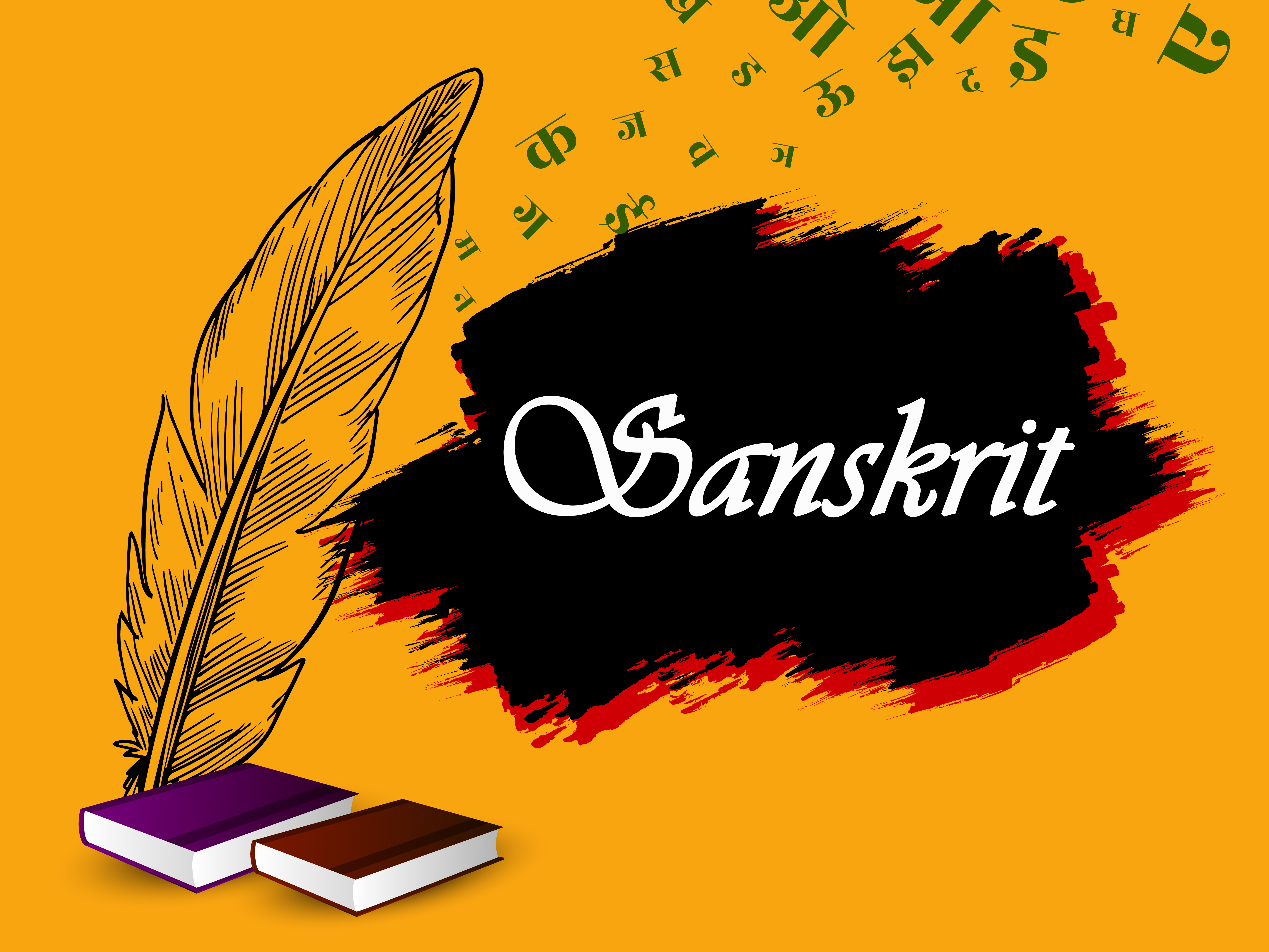
UPSC Civil Services Exam
UPSC is a Constitutional Recruiting Agency
It conducts Civil Services Exam annually. apart from 11 other exams, for Group A, Group B Services of Government of India, such as IAS, IPS, IRS. The Civil Services Exam consists of 3 stages, (1) Prelims, (2)Mains and (3) Interview.
Stage 1 consists of Prelims having 2 papers in Multiple Choice Questions, (1) General Studies and (2) Civil Services Aptitude Test (CSAT) (Qualifying Paper).
Stage 2 consists of Mains having 9 papers, in descriptibe type, (1) English (Qualifying paper), (2) 1 out od 22 Regional Languages (qualifying paper), (3) Essay Paper, (4 to 7) 4 papers of General Studies and (8 to 9) 2 papers of Optional Subjects.
Stage 3 consists of Interview, Which is a Personality Test.

Advantage of Sanskrit as an Optinal Paper
The Scheme of UPSC Civil Services Exam offers 48 Optional Subjects.
While none opted for 6 Subjects and 42 Subjects were opted, during the last 10 years.
The Annual Reports released by reveals that the 10 years Average Success Rate for 42 Subjects is 8.05%, Having the Success Rate of
(1) 8.81% for 16 Specialized Subjects, (2) 9.23% for 17 Languages and (3) 7.69% for 9 General Subjects.
The Success Rate for Sanskrit is 8.23%, which is higher than the Average Success Rate of Total Subjects [8.05%] and the General Subjects [7.69%] and slightly lower than the Specialized Subjects [8.81%].
| UPSC Eligibility 2025 Overview | |||
|---|---|---|---|
| Eligibility | Criteria | ||
| Educational Qualification | Graduation/Final Year or equivalent degree from a recognized university. | ||
| Age Limit | 21 - 32 years | ||
| Age Relaxation | SC/ST: Up to 5 years | ||
| OBC: Up to 3 years | |||
| Other Categories: Additional relaxations for disabled candidates and ex-servicemen. | |||
| Total Attempts | General: 6 attempts | ||
| OBC: 9 attempts | |||
| SC/ST: Unlimited attempts until the age limit is reached. | |||
| Nationality | Indian Citizens | ||
| Citizens of Nepal/Bhutan | |||
| Persons of Indian Origin (PIO) who have migrated with the intention to settle in India. | |||
| Medical Standards | Candidates must be medically fit as per UPSC standards. | ||
| UPSC Age Limit 2025 | |||
|---|---|---|---|
| Category | Minimum Age | Relaxation | Maximum Age |
| General | 21 Years | No Relaxation | 32 Years |
| OBC | 21 Years | 32+3 Years | 35 Years |
| SC/ST | 21 Years | 32+5 Years | 37 Years |
| Persons with Benchmark Disabilities (PwBD) | 21 Years | 32+10 Years | 42 Years |
| EEx-Defence Services Personnel discharged from duty due to disability | General: 21 Years | 32+3 Years | 35 Years |
| OBC: 21 Years | 32+3+3 Years | 38 Years | |
| SC/ST: 21 Years | 32+3+5 Years | 40 Years | |
| Ex-servicemen/ECOs/SSCOs (completed 5 years of service under certain conditions) | General: 21 Years | 32+5 Years | 37 Years |
| OBC: 21 Years | 32+5+3 Years | 40 Years | |
| SC/ST: 21 Years | 32+5+5 Years | 42 Years | |
| UPSC 2025 Age Limit and Attempts | |||
|---|---|---|---|
| Category | Maximum Age | Number of Attempts | |
| General/Economically Weaker Sections (EWS) | 32 | 6 | |
| Other Backward Classes (OBC) | 35 | 9 | |
| Scheduled Castes (SC)/Scheduled Tribes (ST) | 37 | Unlimited | |
| Person with Benchmark DisabilityPwBD | 42 | GL/EWS/OBC – 09 SC/ST – Unlimited |
|
| Union Public Service Commission (UPSC) Cadre's List | |||
|---|---|---|---|
| Cadres | Role | Scope | |
| Indian Administrative Service (IAS) | Administrative officers at various levels, including District Magistrates (DM), Chief Secretaries, and Secretaries to the Government of India. | Wide-ranging administrative responsibilities, policymaking, and governance. | |
| Indian Police Service (IPS) | Senior police officers who oversee law and order, investigation, counter-terrorism, and public security at district and national levels. | Public safety, law enforcement, maintaining peace. | |
| Indian Foreign Service (IFS) | Diplomats representing India at embassies and consulates around the world. | International relations, foreign policy, trade, and diplomacy. | |
| Indian Revenue Service (IRS) – Income Tax | Officers in the Income Tax Department, involved in the collection of taxes, enforcement of tax laws, and financial investigations. | Tax administration, audits, and investigations. | |
| Indian Audit and Accounts Service (IAAS) | Auditing government expenditure and revenues. | Financial audits, accounting, and fiscal management. | |
| Indian Postal Service (IPoS) | Administrative functions within the postal department, managing post offices, and providing postal services. | Logistics, communication, and financial services. | |
| Indian Civil Accounts Service (ICAS) | Responsible for managing the accounts of the government of India. | Budgeting, accounting, and financial management of government funds. | |
| Indian Trade Service (ITS) | Deals with the international trade and commerce sector, including trade policies and international agreements. | Trade promotion, commerce, and negotiations. | |
| Indian Information Service (IIS) | Manages public relations and information dissemination for the government of India. | Media, information, and public outreach. | |
| Indian Railway Traffic Service (IRTS) | Manages the operations and traffic control of Indian Railways. | Railway operations, passenger services, and freight management. | |
| Indian Railway Accounts Service (IRAS) | Handles the financial administration and accounting functions within Indian Railways. | Budgeting, auditing, and financial reporting. | |
| Indian Railway Personnel Service (IRPS) | Manages human resources and personnel policies in the Indian Railways. | Recruitment, staffing, and employee welfare. | |
| Indian Defence Accounts Service (IDAS) | Deals with the accounting functions of the Ministry of Defence. | Financial management in defense establishments, audits, and expenditure tracking. | |
| Indian Ordnance Factories Service (IOFS) | Manages ordnance factories that supply ammunition, armaments, and defense equipment. | Defense production and procurement. | |
| Indian Customs and Central Excise Service (ICS) | Works in customs and excise departments managing the import/export duties and other fiscal responsibilities. | Customs management, tariff enforcement, and excise duty. | |
| Indian Corporate Law Service (ICLS) | Involved in the regulation and management of corporate law in India. | Legal framework for corporate governance. | |
| Indian Economic Service (IES) | Economists working in various ministries of the Government of India, including the Ministry of Finance and Ministry of Planning. | Policy analysis, financial strategies, and national economic planning. | |
| Indian Statistical Service (ISS) | Statisticians working in various government departments, contributing to data collection, analysis, and reporting. | Statistical analysis, economic surveys, and data-driven policymaking. | |
